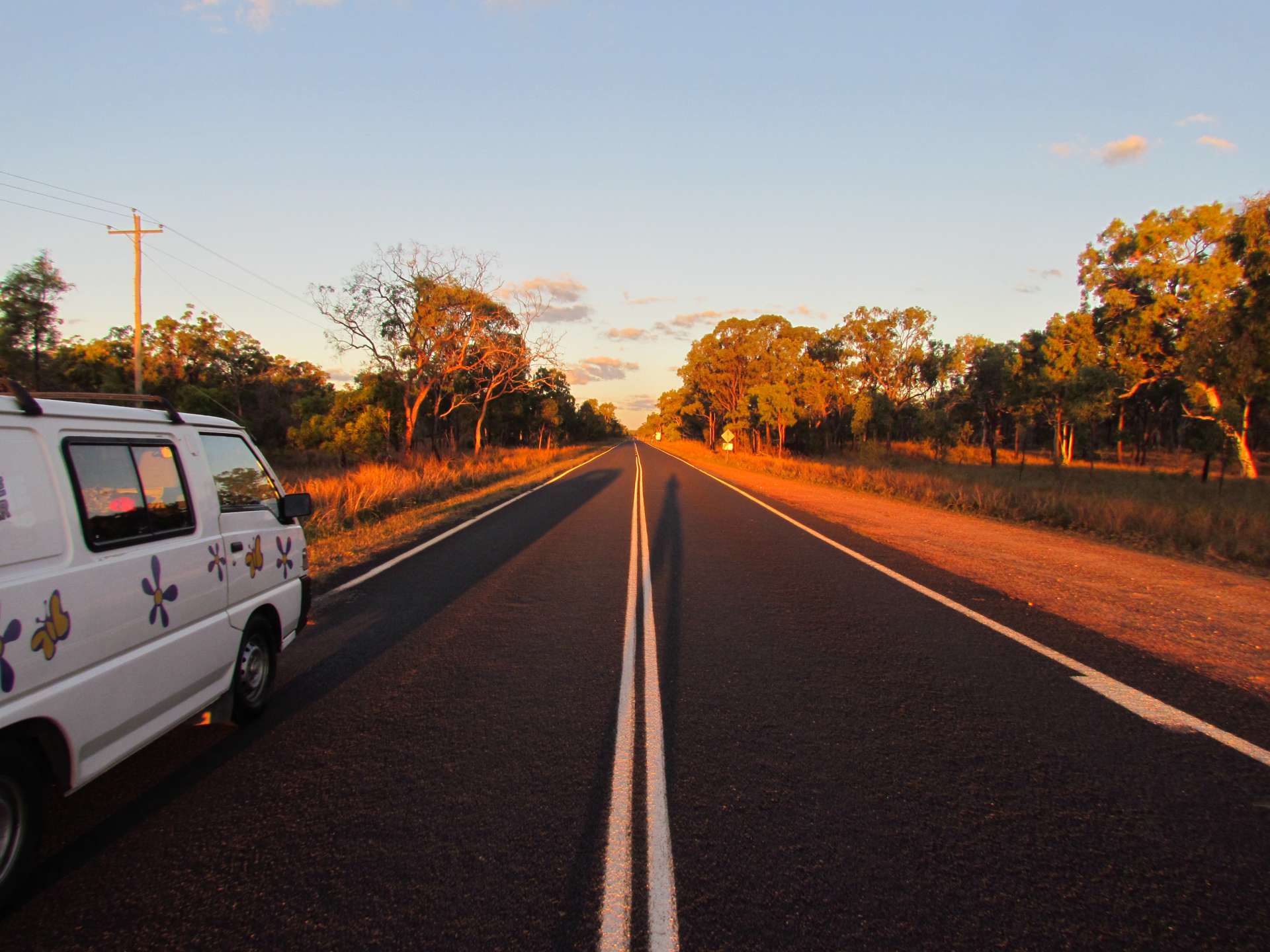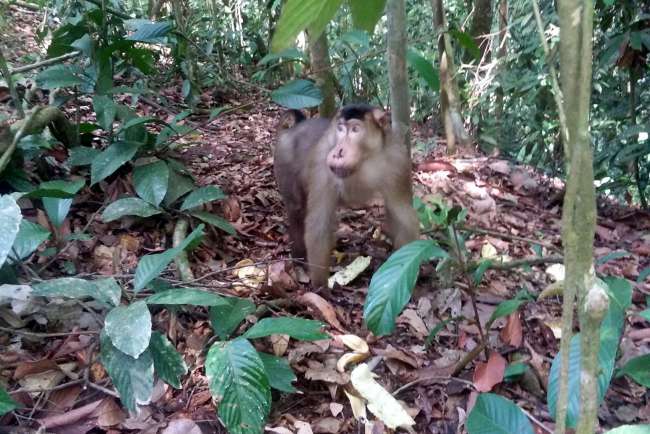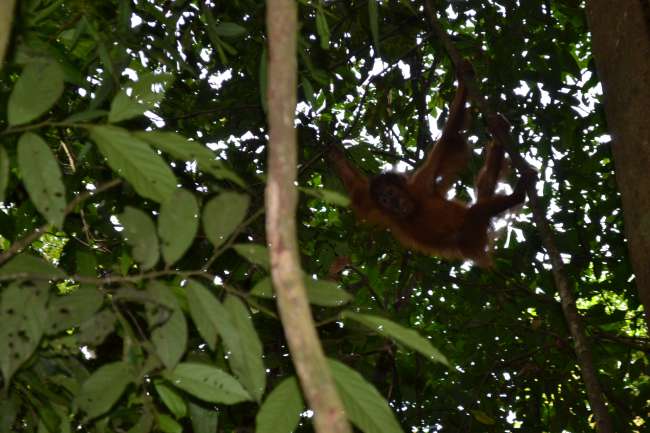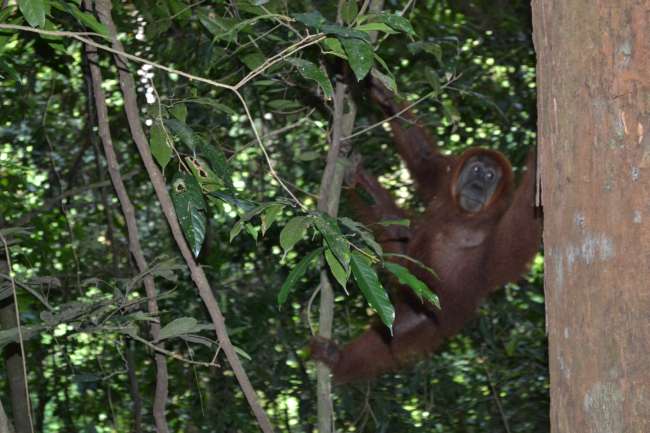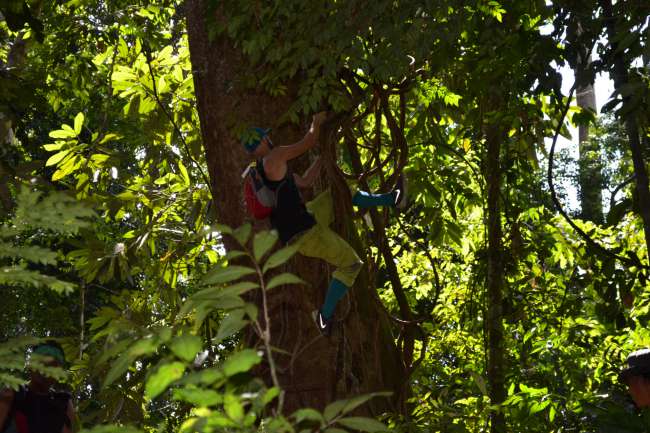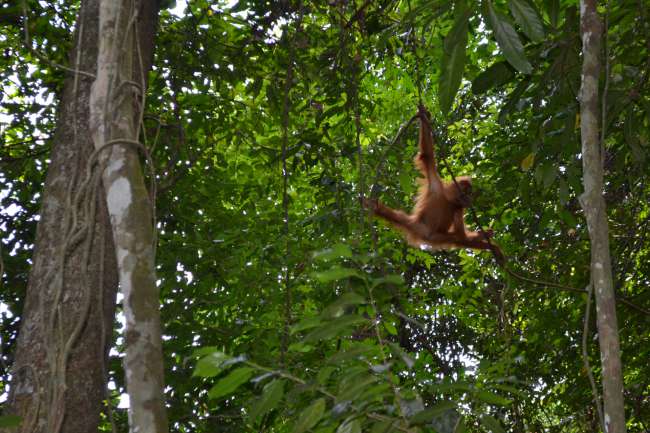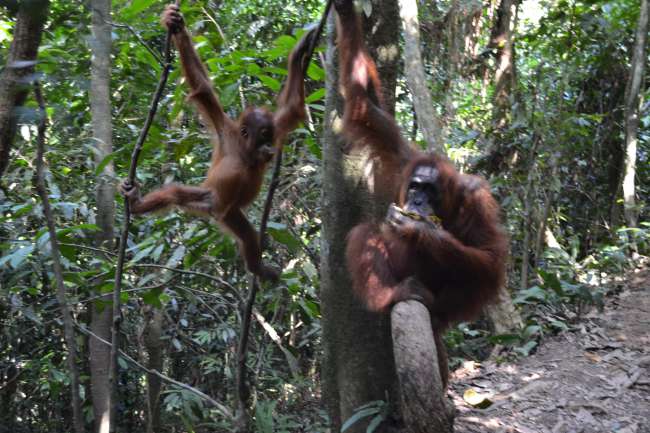Day 34: King Louis Appetite and the Search for Mogli
Cyhoeddwyd: 07.08.2016
Tanysgrifio i'r Cylchlythyr
02.08.2016
If you want to see a lot, you have to get up early. Too early again, but the funny Indos think that the safari trip should start at 9 a.m. The only advantage: the earlier we start, the less time we have to stay in our room, or rather in our Asian cell.
The tour we booked promises relatively few guarantees in advance. Although we are assured that everything will be done to discover monkeys, this is by no means guaranteed. The only thing that is fixed is the price, which is €35. The gentlemen here are quite clever, if they were to write this in rupees, no one would be willing to invest such an amount. In euros, however, the sum seems small and quite familiar. Of course, we see through the game, but in the end, we still decide to support the madness and use the only full day in Bukit Lawang.
Together with a Polish family, who proves their motor impairments right at the first ascent, we are grouped together in a group of five. At first, we are somewhat shocked, as we are used to the off-season in Nepal, including its solitude, and now we find ourselves in the midst of a migration alongside numerous other groups. But after only a few minutes, we are lucky to catch a glimpse of the first orangutans in the distance, and our spirits are soothed. While Gudi keeps a safe distance and uses more than a few Asian tourists as a buffer between her and the redheads, I am completely captivated and make my way through the thickets and slippery slopes to reach the guides of the first group. When I even overtake them and suddenly find myself only a few meters away from King Louis and his companions, I start to wonder for the first time whether these creatures could actually be dangerous. In retrospect, a very late point in time to ponder such trivial matters. In any case, the incredible and unlimited proximity to such breathtaking creatures, which are so similar to oneself (at least to me) in motion and action, is actually worth the money invested.
In addition to the orangutans, we also see other types of monkeys as well as huge ants that smell of ammonia when they bite. I also now know that cocoa does not grow in yellow Benko packages - you never stop learning.
In retrospect, the entire hike, which lasts a total of about 7 hours and takes us at least a little into the Indonesian jungle, can be characterized by a few essential points: first of all, of course, by the sighting of animals, as well as by breaks in which the guides supply us with tropical fruits. These fruits, of which I have never heard of, let alone tasted - for example, they let us taste strange, curved fruits that they call bananas - I actually eat constantly during our hike. Secondly, there is the eternal, desperate search for Mogli, who, according to my research, wanted to live in an Indonesian jungle.
Gradually, I say goodbye more and more to the idea of a challenging hike and submit to the illusion of visiting a zoo, although at least there are no bars here - but also no Mogli. For lunch, which hardly differs in timing from the breaks, the guides reach deep into their bag of tricks and conjure up a banana leaf full of Nasi Goreng including a fried egg for each of us. For dessert, we can indulge in truly exotic fruits like dragon fruits, mango steams or lychees.
After lunch, our blood starts to boil - partly due to the heat. The locals prepare us for the fact that in the next section of the jungle, much more domesticated monkeys live - ignoring their food wishes can lead to aggressive attacks and even serious injuries.
And indeed: the monkeys suddenly become incredibly trusting, but they limit themselves to eating the extensive fruit offerings provided by the tourists (and not my leg).
After a few hours, we start the much less spectacular return journey, which is primarily characterized by various rescue operations, as the Polish son, despite his seventeen years, is so overwhelmed by the environment that he not only leaves a trail of destruction in the jungle, but also puts himself and all of us in danger.
In the evening, we treat ourselves to excellent, inexpensive, and traditional food and, as has almost become a habit on this trip, go to sleep when darkness falls.
Gudi's Glorious Laws:
In the jungle, nothing is touched, everything is left as it was before we arrived!
This law of the green Gudrun is generally commendable and I can definitely support it. Especially when she lets out one of her contemptuous snorts regarding the steamroller of a Polish giant baby. But when the interpretation of the laws goes so far as to suggest that I should not swing on lianas in Gudi's eyes, even though they are as thick as a birch tree, I no longer find the rule so glorious. But don't worry, of course, I did not follow it ;).
Tanysgrifio i'r Cylchlythyr
Ateb
